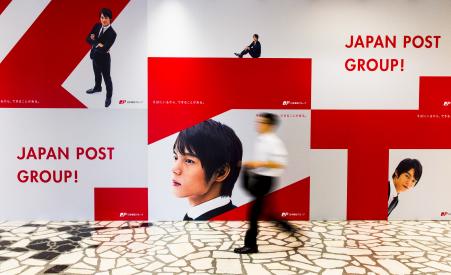By Aditya Tejas -

Japan Post Holdings, the country’s largest bank and insurance company, revealed Thursday that it is seeking to raise 1.39 trillion yen ($11.5 billion) in a massive initial public offering (IPO) that has been over a decade in the works.
Japan Post, in addition to being the country’s postal system, is also the world’s biggest bank, with about 320 trillion yen ($2.8 trillion) in savings and life-insurance accounts.
The Tokyo Stock Exchange said that Japan Post Holdings and its units Japan Post Bank Co. and Japan Post Insurance Co. are scheduled to be listed on Nov. 4.
That would make the IPO Japan’s biggest-ever since telecoms company NTT Docomo Inc. went public in 1998, raising 2.1 trillion yen ($17.3 billion). It would also be the biggest share sale this year globally, dwarfing Chinese brokerage Huatai Securities’ $5 billion IPO in May.
Sources told the Financial Times that about 80 percent of the shares from the IPO would be listed on the domestic Japanese market, of which about 90 percent are expected to be pitched to retail investors. In total, the government plans to sell as much as two-thirds of Japan Post Holdings in phases, beginning with the November IPO. It also plans to sell about half of Japan Post Bank and Japan Post Insurance.
“Everyone in Japan knows the name of Japan Post so that familiarity might have reflected such an allocation of shares,” an unnamed government official told the Wall Street Journal.
The IPO has been planned by Tokyo ever since former prime minister Junichiro Koizumi first called for it almost a decade ago in 2005. The move is part of a wide-ranging set of modernization projects that aim to streamline the country’s economy. The country has privatized several other state-owned monopolies in recent decades, including its state-owned railway, telephone company and cigarette manufacturer.
The Japan Post was formally privatized and renamed the Japan Post Group in 2007, but the process has been stalled since 2010, and the Japanese Ministry of Finance is still the sole shareholder.
The decision to push the IPO ahead in November is a signal of the government’s desperation to privatize the company, sources close to the deal told the FT. The administration of Prime Minister Shinzo Abe has suffered from sagging approval ratings amid concerns over his economic policies, which critics say has failed the country’s poorest residents.
